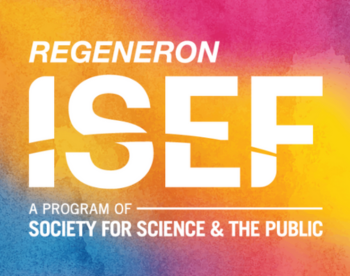Mathematics Research Topics for High School Students
[elementor-template id="1670"]
Mathematics research is dedicated to the systematic exploration of mathematical theories, methods, and applications. This process involves not only posing new mathematical problems and proving mathematical propositions but also developing new algorithms and using mathematical tools to solve real-world problems. Mathematics research can be divided into pure mathematics and applied mathematics. The former focuses on the intrinsic logic and development of mathematical theory, while the latter emphasizes the application value of mathematics in practical problems. Through relentless effort, mathematicians continuously expand the boundaries of mathematical knowledge, revealing new mathematical principles and methods.
Mathematics research plays a crucial role in numerous fields. As the fundamental language of natural sciences, mathematics provides powerful tools and methodological support for disciplines such as physics, chemistry, and biology. In engineering and technology, mathematics research aids in the design and optimization of various complex systems, such as computer networks, transportation facilities, and architectural design. Financial market analysis also relies on mathematics research to uncover market dynamics and assist in formulating investment strategies. Moreover, the development of artificial intelligence depends on the support of mathematics research, which provides the necessary algorithms and theoretical foundation. Additionally, mathematics research plays an important role in social management and policy-making, such as demographic analysis and resource allocation optimization.
In this issue, Embark math mentors have carefully selected 30 mathematical exploration topics that span multiple branches of mathematics. These topics aim to inspire your interest in the field of mathematics and provide you with a broad range of ideas and inspiration for your research journey.
How to participate in mathematics research?
High school students interested in mathematics research can start by focusing on several key areas. First, they need to solidify their understanding of core concepts and methods in high school mathematics courses, including algebra, geometry, probability, and statistics. Next, by reading mathematical papers and popular science books, they can learn about the latest developments in mathematics research and problem-solving methods. Participating in math competitions, such as the National High School Mathematics League, can help develop problem-solving skills and innovative thinking. Finding an experienced mentor for guidance and participating in their research projects is also an effective way to enhance mathematical research skills. Additionally, students should attempt to solve practical mathematical problems, conduct small-scale research projects, and record and analyze results. Finally, actively participating in mathematics seminars or joining relevant clubs allows students to exchange ideas and experiences with like-minded peers. Through these practical steps, high school students can gradually build basic mathematical research skills and continually grow and progress in their exploration journey.
In this guide, we offer 30 research topics spanning various branches of mathematics for high school students to explore. These ideas encompass diverse areas within mathematics and are designed to ignite students' curiosity and provide a foundation for their research endeavors.
Research Topic 1: Research in Fractal Geometry in Mathematics
Fractal geometry is a branch of mathematics that studies shapes with self-similarity. This field helps us understand complex natural structures, like snowflakes, mountains, and coastlines. High school students can explore fractal geometry by studying its definitions, properties, and applications. For instance, researching the Mandelbrot set can help them understand how fractal patterns are created. Through this study, students can build spatial imagination and mathematical modeling skills.
You can explore the following topics:
- Basic concepts and properties of fractal geometry
- Mathematical description of self-similarity
- Fractal pattern generation algorithms
- Applications of fractal geometry in nature
Research Topic 2: Research in Topology in Mathematics
Topology is a mathematical field that studies properties of spaces and shapes that remain unchanged through continuous transformations. It helps in understanding the fundamental structure and connectivity of objects. High school students can gain insights by studying the basic concepts, theorems, and applications of topology. For example, exploring connectivity and compactness of topological spaces helps students grasp relationships between shapes. This research enhances students' abstract thinking and logical reasoning.
You can explore the following topics:
5. Basic concepts and properties of topological spaces
6. Connectivity and compactness in topology
7. Applications of topology in network science
8. Applications of topology in biology
Research Topic 3: Research in Combinatorial Optimization in Mathematics
Combinatorial optimization is a field that focuses on finding the best solution within a finite set, used to address real-world issues such as scheduling, routing, and resource allocation. High school students can delve into combinatorial optimization by studying basic algorithms and applications. For example, studying the Traveling Salesman Problem can illustrate the practical use of optimization algorithms. Through this research, students can develop problem-solving and algorithm design skills.
You can explore the following topics:
9. Basic concepts and methods of combinatorial optimization
10. Mathematical modeling of optimization problems
11. Heuristic algorithms and their applications
12. Applications of combinatorial optimization in logistics
Research Topic 4: Research in Probabilistic Graphical Models in Mathematics
Probabilistic graphical models are mathematical tools for representing and reasoning about complex probability distributions. They help us understand relationships and dependencies between random variables. High school students can study the definitions, properties, and applications of these models. For instance, exploring Bayesian networks can aid in understanding conditional probability and causation. This research helps students build statistical reasoning and data analysis skills.
You can explore the following topics:
13. Basic concepts and types of probabilistic graphical models
14. Construction and applications of Bayesian networks
15. Properties of Markov random fields
16. Applications of probabilistic graphical models in finance
[elementor-template id="1677"]
Research Topic 5: Research in Quantum Computing in Mathematics
Quantum computing is a computational model based on principles of quantum mechanics. It helps solve problems that are challenging for classical computers, such as integer factorization and optimization. High school students can explore quantum computing by studying fundamental concepts, algorithms, and applications. For example, researching Shor's algorithm can illustrate quantum computing's role in cryptography. This study cultivates innovative thinking and interest in cutting-edge technology.
You can explore the following topics:
17. Basic concepts and principles of quantum computing
18. Design and applications of quantum algorithms
19. Construction and implementation of quantum computers
20. Applications of quantum computing in drug design
Research Topic 6: Research in Fuzzy Logic in Mathematics
Fuzzy logic is a mathematical tool for handling uncertainty and ambiguity. It aids in solving practical problems such as control systems and decision support systems. High school students can gain a deeper understanding by exploring basic concepts, methods, and applications of fuzzy logic. For instance, studying fuzzy controllers reveals fuzzy logic's applications in engineering. This research enhances logical reasoning and engineering application skills.
You can explore the following topics:
21. Basic concepts and methods of fuzzy logic
22. Fuzzy sets and fuzzy reasoning
23. Design and implementation of fuzzy controllers
24. Applications of fuzzy logic in artificial intelligence
Research Topic 7: Research in Stochastic Processes in Mathematics
A stochastic process is a mathematical model describing how systems evolve over time. It aids in understanding natural phenomena and engineering issues like stock price fluctuations and signal processing. High school students can deepen their knowledge by studying basic concepts, types, and applications of stochastic processes. For example, researching Brownian motion helps explain the properties of random walks. This study enhances random analysis and modeling skills.
You can explore the following topics:
25. Basic concepts and types of stochastic processes
26. Brownian motion and random walks
27. Applications of stochastic processes in finance
28. Applications of stochastic processes in signal processing
Research Topic 8: Research in Number Theory in Mathematics
Number theory is a branch of mathematics that examines integers and their properties. It helps us understand the fundamental structure and patterns of numbers. High school students can deepen their understanding by studying basic concepts, theorems, and applications in number theory. For example, exploring Fermat's Last Theorem can illustrate complex problems in number theory. This research fosters abstract thinking and proof skills.
You can explore the following topics:
29. Basic concepts and properties of number theory
30. The history and proof of Fermat's Last Theorem
You can view more Math research topics for high school students here.
Another Option - Embark Exploration Program
Embark, established in 2016, is an educational institution focused on providing customized scientific research training for young people. The core team members are graduates from top universities in the United States. Embark has over 3,000 mentors from prestigious institutions such as the Ivy League, MIT, Caltech, Johns Hopkins University, and Carnegie Mellon University.
Embark offers personalized one-on-one research guidance, tailoring research topics to the interests of each student. Embark helps students systematically develop research skills, build a solid research framework, integrate research with real-world applications, understand the value of research, and enhance their problem-solving abilities. All of this contributes to strengthening their college applications.
For more information, please visit the Embark Exploration Program. If you have any questions or need further information, feel free to contact us. We would be happy to assist you and discuss collaboration opportunities.
[elementor-template id="1682"]



